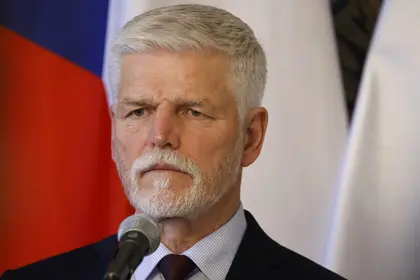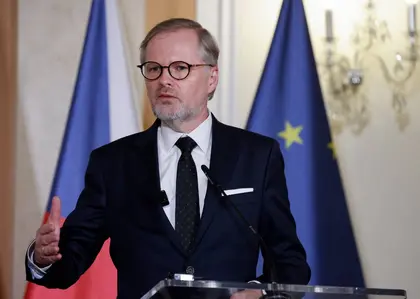The Czech Republic prime minister said Friday an international initiative to buy arms for Ukraine from outside Europe had raised enough money to buy 300,000 shells, revising down figures given by the president.
President Petr Pavel said Thursday Ukraine would get 800,000 shells within weeks as 18 donor countries had pledged funding.
JOIN US ON TELEGRAM
Follow our coverage of the war on the @Kyivpost_official.
"We have managed to raise enough money to buy the first batch of 300,000 artillery shells," Prime Minister Petr Fiala said in an update.
"However, our goal is to deliver much more! We keep seeking partners so that we can continue to support Ukraine in its brave fight against the Russian aggressor," he added on X, formerly Twitter.
Europe has struggled to provide enough munitions for Ukraine. European Union nations had promised one million shells by the end of March but has fallen well short in deliveries.
But Pavel told a security conference in Munich last month that the Czech Republic -- an EU and NATO member of 10.8 million people -- was able to collect a substantial amount of weaponry for Ukraine outside the continent.
He said at the time that, working with Canada and Denmark, the Czechs had "identified" 500,000 rounds of 155-millimetre and 300,000 122-millimetre shells.
The Financial Times had previously reported Prague wanted to raise $1.5 billion to pay for the munitions.
Ukrainian forces have for months been contending with a lack of ammunition as they try to hold off Russian troops, which invaded in February 2022.

ISW Russian Offensive Campaign Assessment, January 21, 2025
Kyiv's backers have sent millions of their own shells to Ukraine, but stocks are running low.
Some EU allies have been reluctant to channel military spending outside Europe. And a US aid package worth $60 billion has been held up amid wrangling in Congress.
Belgium, Britain, Canada, Denmark, France, Germany, Lithuania, the Netherlands, Norway and Sweden are among countries contributing to the Czech-led project.
The Netherlands has pledged 100 million euros ($109 million), while Germany has offered a "three-digit million euro sum".
You can also highlight the text and press Ctrl + Enter










